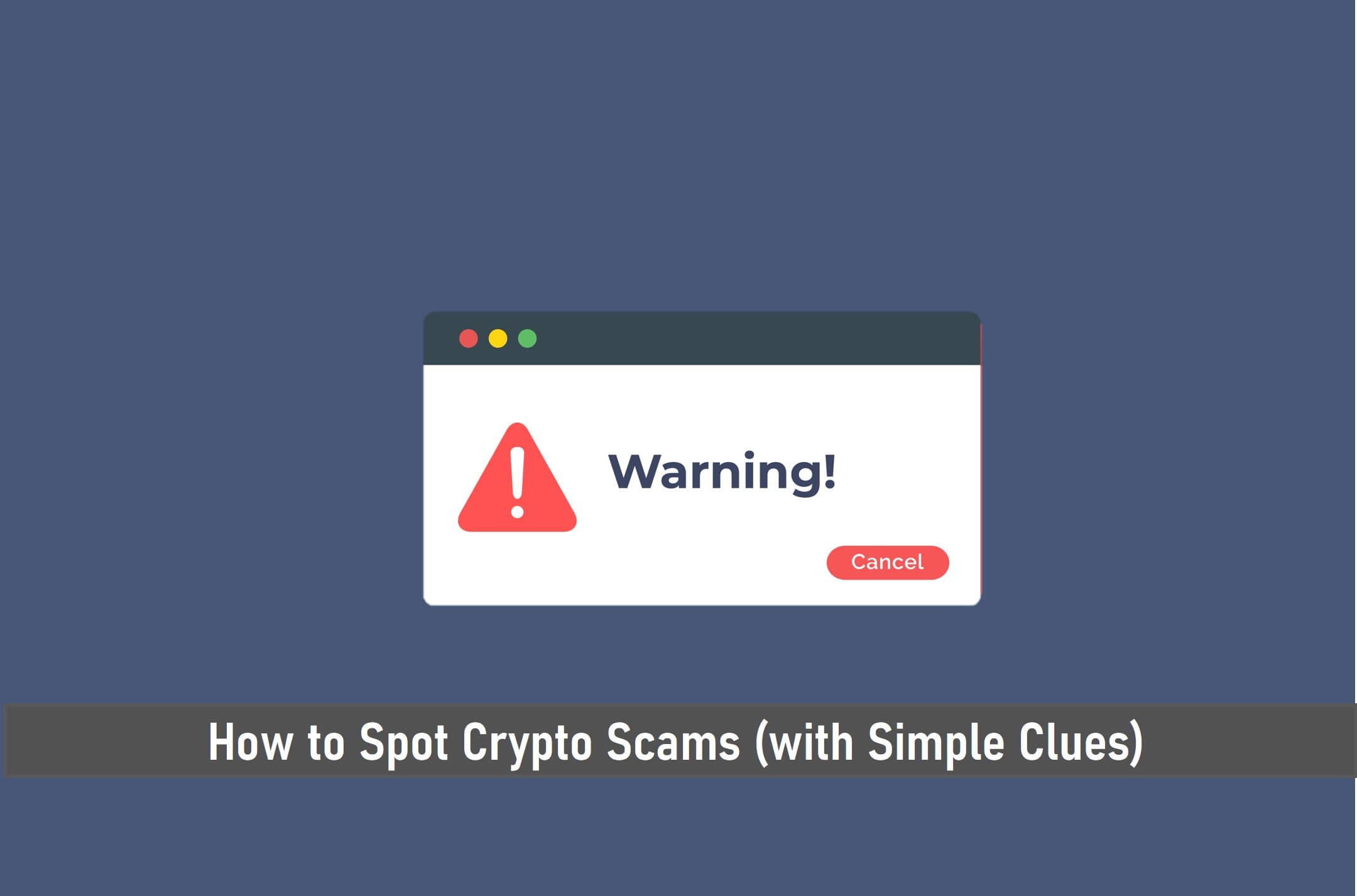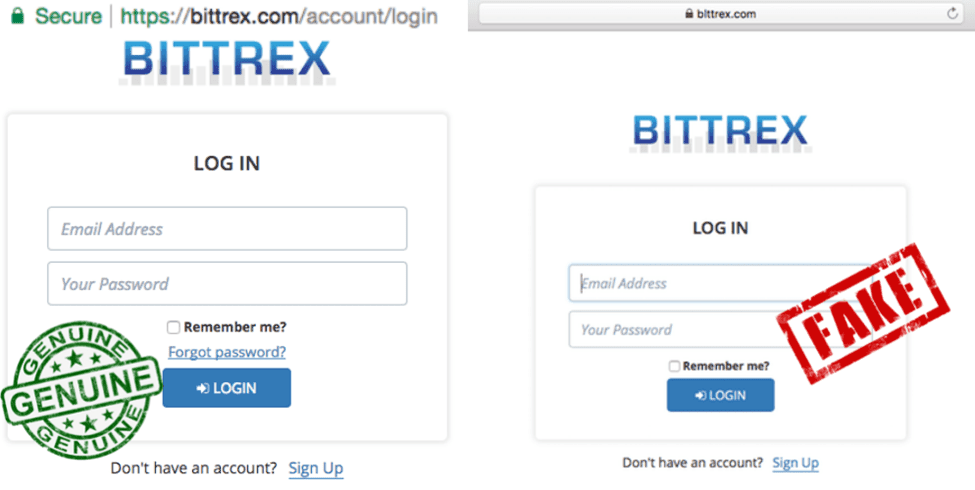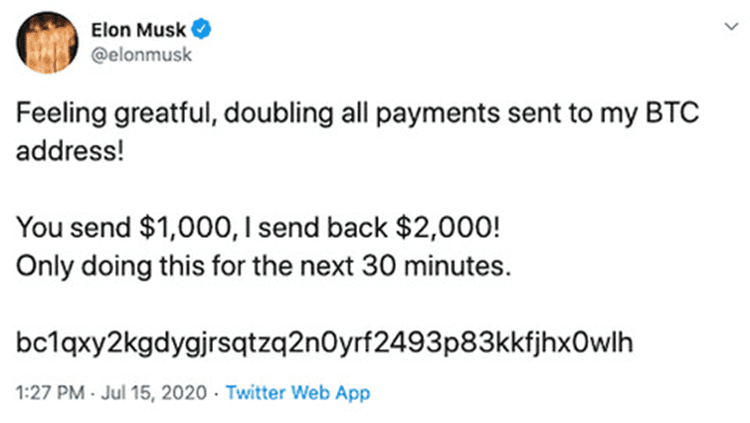
How to Spot Crypto Scams
With over 6000 coins and tokens in the crypto market, one may not know which ones are truly going to be in the market for the long haul. ICOs (Initial Coin Offerings) is one of the widespread measures many investors have fallen victims to scams.
The pump and dump crypto scheme became prevalent a few years back with the release of new tokens into the market which was backed up by a form of hype and fake recommendations.
One can only wonder why so many coins and tokens have flooded the market, I guess this is the downside to the decentralized system running the blockchain. Unfortunately, the issue prices of these ICOs are ridiculously cheap ($0.00010) enticing the public to bet on them heavily.
Due to the ever-evolving blockchain technology, they find it hard to know which coin is genuine or not, so knowing the difference between legit crypto and a fake may not be so easy to do.
Apart from this, there are also other ways crypto scams happen, such as fake emails telling you that you have won a specific amount of crypto that you had no prior knowledge about or creating look-alike websites or pages of popular websites with a high level of patronage just to scam as many investors as possible.
In this article, I will be showing you how you can spot crypto scams with suggested clues on how to recognize them.

Key Takeaways
• Crypto scams are on the rise, particularly as new cryptocurrencies enter the crypto space.
• Always do your own research before going on with any advice or suggestion as regards crypto on social media.
• Phishing websites are very deceitful and some look so much like the original that you may not be able to easily tell the difference, which is why you should be sure of what you are looking for on the internet.
• Disregard suspicious crypto emails, especially the ones that tend to appear in your spam folder, as they are, most often than not, crypto scams.
SEE ALSO: How to Flee these 10 Bitcoin Scams Now!
SEE ALSO: Crypto Dusting Attacks – How to Confirm Your Wallet is Affected
SEE ALSO: How to Get Back Stolen Bitcoin from Cybercriminals
Let us take a look at how in detail.
1. Do a Background Check on the Developers
For every cryptocurrency in existence, there is always a development team responsible for its creation, which can easily be found on the internet.
If you suddenly discovered the existence of a crypto coin and you have an interest in it, start first by taking a look at the development team.
A cryptocurrency that is indeed genuine always has a development team that you can easily find details about on various social media outlets.
Some even go as far as having a credible site or page of their own where you can find as much information about them (experience, qualifications, etc.) as possible.
If the cryptocurrency you have an interest in does not have a development team or if there are no credible sources on the internet about them, then you might want to think twice before investing in it as there is a high chance that the crypto coin might be a crypto scam.
2. Analyze the Whitepaper Thoroughly
Every genuine cryptocurrency has a whitepaper that serves as the foundation for its existence. Just like you have a manual that comes with a vehicle stating its model, type, and other details, the whitepaper serves the same purpose.
It exists to inform potential investors about the motive for the creation of said cryptocurrency, as well as its plans and goals.
A solid whitepaper provides convincing details, which are easily accessible most of the time on the webpage of the given cryptocurrency.
If a cryptocurrency does not have a whitepaper or the company behind it has no record of a whitepaper whatsoever, then it is best to keep your distance as far away as possible from such cryptocurrencies or companies because, more often than not, they might be scams aimed at gullible investors.
Note: It is not just enough to do your research on a coin to check for scams or flaws before investing in it. Sometimes, some of these crypto coins or crypto startups/companies can be very daring and may decide to come to you instead.
When they do, they usually come in the formats listed below:
3. Fake Emails
Once in a while, you might receive an email stating that you are eligible for a specific amount of cryptocurrency or that you have won a particular amount which you need to redeem, and then you will be directed to click on a link, which may lead to you providing sensitive details you might end up regretting later.
One thing you should ask yourself when you see these mails is, Did I, at any point in time, show interest in any sort of way concerning the crypto or the company involved?, Did I register or sign up on their platform? etc.
Once your answers to these questions are a resounding “NO,” you might want to delete such messages from your folder and move on with your life.
Also, these emails sometimes come with incoherent messages or misspellings of some sort, which you should be able to identify if you have a keen eye. As a result, once you notice them, you know they are nothing but scams.
4. Phishing Websites

While researching a crypto cloud mining site, I stumbled upon a website that looked just like it, with the same name and address, the only difference being the page color.
At first glance, I thought that they might be some sort of affiliate to the original site until I recalled that there is a high chance that it is nothing but a phishing website trying to mirror the original.
Just as I stumbled upon one, there is also a good chance that you might stumble upon websites of this sort, trying to lure investors to disclose sensitive information that may compromise their crypto holdings or something else entirely.
Always make sure that you double-check the web address of whichever crypto website you want to have access to.
If possible, have a mental picture of what the website layout and design look like down to the smallest of details. That way, it becomes incredibly hard for you to fall victim to these phishing sites.
Most of the time, they may omit something or even add something not present on the original website, and with you having had a mental note of what the original website looks like, you can easily detect this and avoid it.
5. Fake Cryptocurrency Apps
I believe it is no news to you or anyone else that there are thousands of lookalike or fake apps littered on the web regularly. This issue has even been taken note of by Bitcoin News, which shows just how rampant it has become.
On mobile, stores such as the Google Play Store or Apple Store usually have a lot of fake apps mirroring the original apps of crypto sites or exchanges, such as the Binance app, for instance, and if you are not careful, you might go ahead and download the fake ones.
Though fake apps are usually flushed out by the administrators of these stores, you still need to do your part, as you can never be too careful.
The more these fake apps are flushed out, the more a new set of fake ones springs up again, which is why you always have to be careful.
If possible, always follow the direct links from a website to an app to automatically get the original app for download rather than heading to the Google Play Store or Apple Store to type in a name.
This is because when you do that, so many apps spring up, and if you don’t know exactly which one you are looking for, you might just end up downloading the wrong one.
6. Fake Social Media Accounts and Misleading Tweets

Learn to always be careful whenever you follow a particular social media account and don’t be in a hurry to carry out whatever you see or read on social media.
Also, when it comes to messages, always be careful not to be too naive concerning what people tweet about cryptocurrencies.
If you want to take action, you can always do your research to find out the truth for yourself rather than take the opinions of others as absolute.
Even if such messages are coming from your favorite celebrities, you still need to be very careful as their accounts can be compromised and they may not be the ones behind the account sending out the messages.
This type of event occurred two years ago when a lot of celebrity Twitter accounts were compromised and misleading crypto messages were sent, leading to people losing a lot of their crypto holdings because of their inability to decipher that it was nothing but a scam.
SEE ALSO: 3 Smart Ways the Police Can Crackdown Cryptocurrency Criminals
Frequently Asked Questions (FAQs)
Can you get scammed on Coinbase?
No, you can’t get scammed on Coinbase, but beware that some scammers can create a Coinbase phishing site to deceive you into thinking that it is Coinbase, and if you are not careful, you may lose your funds with them.
Are Cryptocurrency Scams on the Rise?
Unfortunately, yes. Cryptocurrency scams have been growing exponentially in recent years, an activity that comes with the rise in cryptocurrencies.
Final Thoughts
Avoiding crypto scams may not always be an easy thing to do, especially since crypto hackers and criminals are constantly thinking of new and indigenous ways to perfect their scamming activities.
Nonetheless, after taking a look at this article, you should be able to avoid the most common ones and be on the lookout for suspicious crypto activities, as this will be important if you don’t want to get scammed.
Read More




